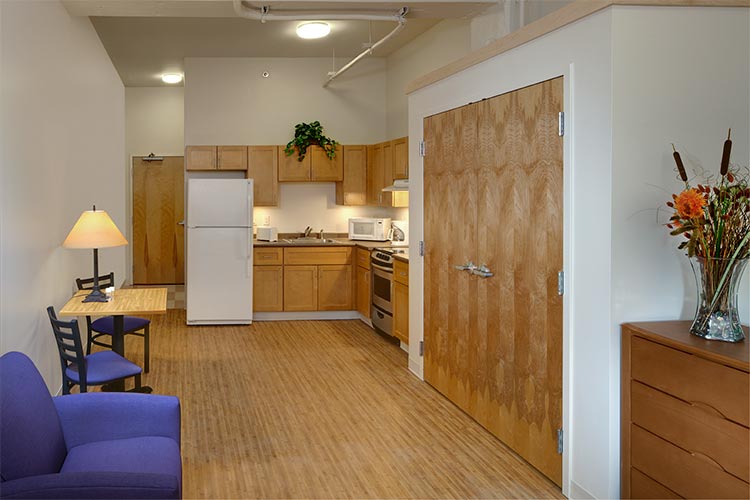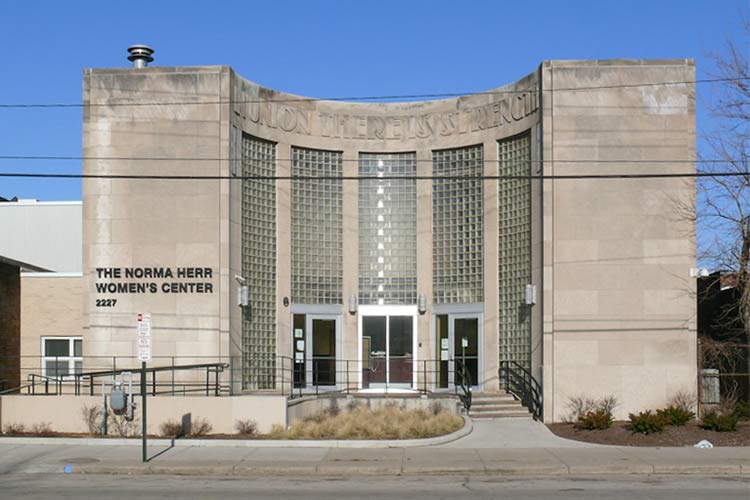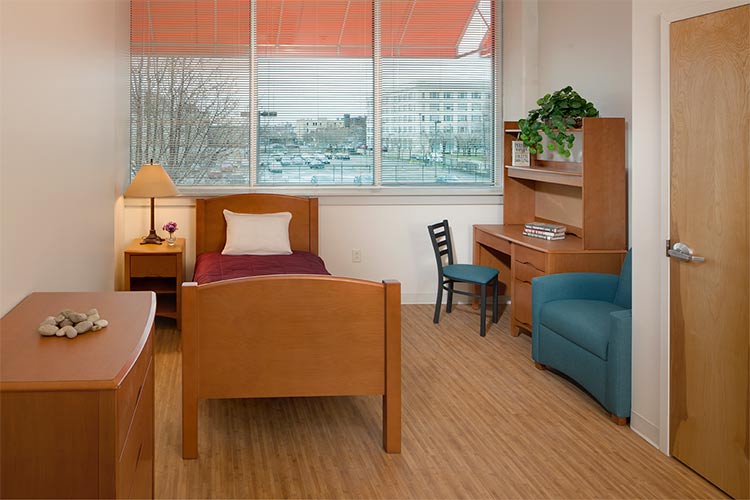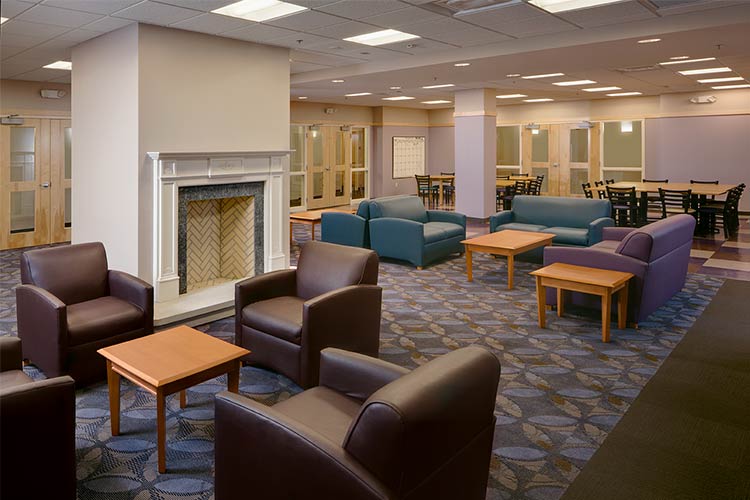Today is World Homeless Day. How can you help? The YWCA Greater Cleveland has a few ideas.
With today designated as World Homeless Day, the YWCA is turning its lens on Cleveland—where there are more than 22,000 people homeless annually, and about 4,000 people homeless each night (according to the Northeast Ohio Coalition for the Homeless). According to the Center for Community Solutions, 36.2 percent of Cleveland’s population lives in poverty and 18.2 are in abject poverty (with a household income less than 50 percent of the poverty rate).
Additionally, the Cleveland Public Schools saw 2,744 homeless students in 2017, and the minimum wage in Cuyahoga County in 2017 was $8.30 an hour, meaning a single mom would have to work at least two minimum wage jobs to provide for her children. There were more than 11,000 evictions in the Cleveland Housing Court, and a percentage of those evicted fall into homelessness every year.
Margaret Mitchell, president and CEO of YWCA Greater Cleveland, believes housing in Cleveland is a community problem, and that those residents living in poverty also lack the community networks they need to avoid becoming homeless.
For World Homeless Day, Mitchell asks people to ponder this situation: “Imagine if something happened to your house today and the insurance company said, ‘We can't do anything for three weeks. In three hours, probably 35 minutes, your network would take you in. But when you have an impoverished network, it’s different. We sometimes think homelessness is about a house. But it’s often about broken relationships.'”
With that in mind, Mitchell and the YWCA are leading the way to end homelessness—especially among women, young adults, and children—by implementing programs to combat the problem and asking Northeast Ohio communities to get more involved.
"As luxury complexes go up around the city and neighborhoods begin to boom again, we must maintain a priority on affordable housing and then act upon it and not just give a head nod,” Mitchell says. “We understand how employment and housing suffer from structural racism. So, know what? We can’t remain comfortable with the status quo. There are innovative conversations happening. It’s time to take action.”
Bridging the divide
The YWCA has already implemented programs targeted specifically at women and youth, whom Mitchell stresses are often ignored when it comes to issues of homelessness. “We see this at all levels of our society today,” she says. “Women and youth are overlooked and undervalued, and homelessness creates an even larger divide.”
For instance, the YWCA estimates that 24 percent of teens in Cleveland who age of out of foster care end up homeless within four years. About 200 people ages 18 to 24 are in a shelter each night. Mitchell and her team recognize that these youth do not have the resources—or the networks—in place to make a solid start at adult life, so they have created programs to give them a leg up.
One of those programs is A Place 4 Me, a collaborative initiative between the YWCA and 30 partner organizations targeting young adults between ages 18 to 24 who have aged out of foster care and are at greater risk of becoming homeless.
“A Place 4 Me is looking at the root causes of youth homelessness, and we believe we can get to a functional zero,” says Mitchell. “But it will take systems and communities responding differently to a quiet crisis.”
 Independence Place offers permanent supportive housing to Cleveland’s at-risk youth with 23 apartments, a third of which accept children. The idea is to give individuals and families the training and support they need to live independent lives in permanent homes. Tenants are assigned life coaches to help them identify and reach their goals and are given follow-up support via Community Nurturing Independence and Aspirations (NIA).
Independence Place offers permanent supportive housing to Cleveland’s at-risk youth with 23 apartments, a third of which accept children. The idea is to give individuals and families the training and support they need to live independent lives in permanent homes. Tenants are assigned life coaches to help them identify and reach their goals and are given follow-up support via Community Nurturing Independence and Aspirations (NIA).
“We meet them where they are and support them on what they want to achieve,” explains Mitchell. “And we maintain those relationships after they leave the YWCA. We always say [that] no one ever ages out of the YWCA.”
Mitchell reports that 100 to 125 18-year-olds age out of foster care in Cleveland annually, and YWCA has been successful in helping those youth through their services. “We have supported 80 young people ages 18 to 24 over the past seven years who now live in the community,” she shares. “Of that number, 80 percent have successfully sustained housing and self-sufficiency. Less than nine percent have returned to homelessness.”
Taking the next step
YWCA took over management of Cuyahoga County’s Norma Herr Women’s Center on May 1 this year and has seen an average of 200 women nightly since then. The emergency shelter only takes single women and offers counseling and services to overcome issues surrounding homelessness, trauma, physical abuse, and substance abuse—with the aim of helping them re-establish self-sufficiency and independence. Since taking over Norma Herr, the YWCA has found permanent living for more than 66 women who have come through the shelter.
But Mitchell stresses that the homeless crisis is far from over in Cleveland, and the only way things will improve is to get more community involvement.
 “We need to have more housing, and we need to have communities that could—and should—find ways to welcome individuals with housing,” she says. “We need to continue to build bridges with the east and west communities to demystify and ‘de-terrify’ communities about young people, women, and families who have experienced homelessness.”
“We need to have more housing, and we need to have communities that could—and should—find ways to welcome individuals with housing,” she says. “We need to continue to build bridges with the east and west communities to demystify and ‘de-terrify’ communities about young people, women, and families who have experienced homelessness.”
After all, anyone can find themselves homeless. “We’re in an amazing time of growth and prosperity in our country, but not everyone is experiencing that,” Mitchell says. “We need to recognize how similar we are to that homeless woman or that homeless youth.”
Those who want to make a difference on an individual level can get involved with YWCA initiatives such as Open Table, which invites professionals from various industries to provide guidance on education, finance, employment, healthcare, and more to a formerly homeless young person. The pairing quickly develops a sense of community for the young person, who has likely never before experienced this type of relationship, says Mitchell.
“Community is key, as it drives success in education, employment, and maintained housing,” she says. "We believe this is the most effective way to be part of the solution.”
Individuals could also support the solution through advocating for housing rights via Not in My Backyard (NIMBY). “Too often, we voice acceptance of equal housing rights until it is happening in our own neighborhoods,” says Mitchell. “Youth have trouble finding housing because there are specific neighborhoods that are not open to housing all people. Until our entire community is accepting, homelessness will continue to exist.”
To get involved with Open Table at YWCA Greater Cleveland, contact coordinator Beverly Mitchell.



